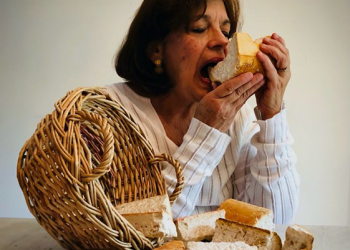There are in Cuba several ways to detect a gifted child at an early age, through the program “Educa” (Educate), a non-institutional way serving preschool-age infants in partnership with families.
Those are children who advance faster than the rest of the school group they belong to, and stand out for their skills and capacities, according to the MSc. Jesus Rodriguez, methodologist of the National Primary Education in the Cuban Ministry of Education.
In the genesis of gifted children the biological and social environment has great influence, and the family and school are also important, which is where the child receives the highest cognitive input.
“As educators we observe a boy sometimes is considered a talented pupil, in a comprehensive manner, but there are others who are gifted just in some topics, like language, that is, they learn to read easily, to have a very good handwriting, they show that talent when grouping sets, by associating numbers to solve addition and subtraction equalities, or in different manifestations of the visual arts, dramatizations, singing, chess, among others.”
The expert also noted that motor skills and muscle control are generally much more advanced in these children than in the rest of the group; they capture orders and messages quickly, and are faster when providing an answer.
“For all this, the teacher has to prepare himself to assume in every moment what these students really need, if it does not happen, the child feels overwhelmed and rejected by the school, and gets bored in class because it is not given the suitable attention “.
“It is considered they must not skip grades, because it can cause some problems in the student when developing himself into higher stages, such as early adolescence, if we move to a six-year-old boy in a classroom with students who are eight, the interests and motivations are not the same; we try these special children to stay in the group they have been assigned to, and which they will transit during their education.”
“In Cuba these children are cared by age, from their own physiological and psychological characteristics. So they are more likely to progress, and to reach higher levels of development. ”
Rodriguez said the family is kept informed about what to do with the child, and what to expect at every opportunity which correlates with him, without seeing it as a constant reinforcement of intellectual activity, as these children should enjoy their age as the rest of their friends.
The specialist also added that the cultural level of the parents is not crucial. “We have seen some very talented kids who come from families with an adequate cultural level, where there are not illiterate persons, but also professionals; we do consider the family, the community and all the child’s interaction with his surrounding environment is very important, therefore we can say that it influences but does not decide in all cases.”
He noted the Cuban schools increasingly qualify through their methodological system for teachers to assume greater academic preparation covering all branches of knowledge.
Gifted children need specialized care, so that teachers can determine, from diagnosis in different subjects, which are their strengths and needs, and also develop a system of activities that allows them to move from one level of learning to a more advanced one.










